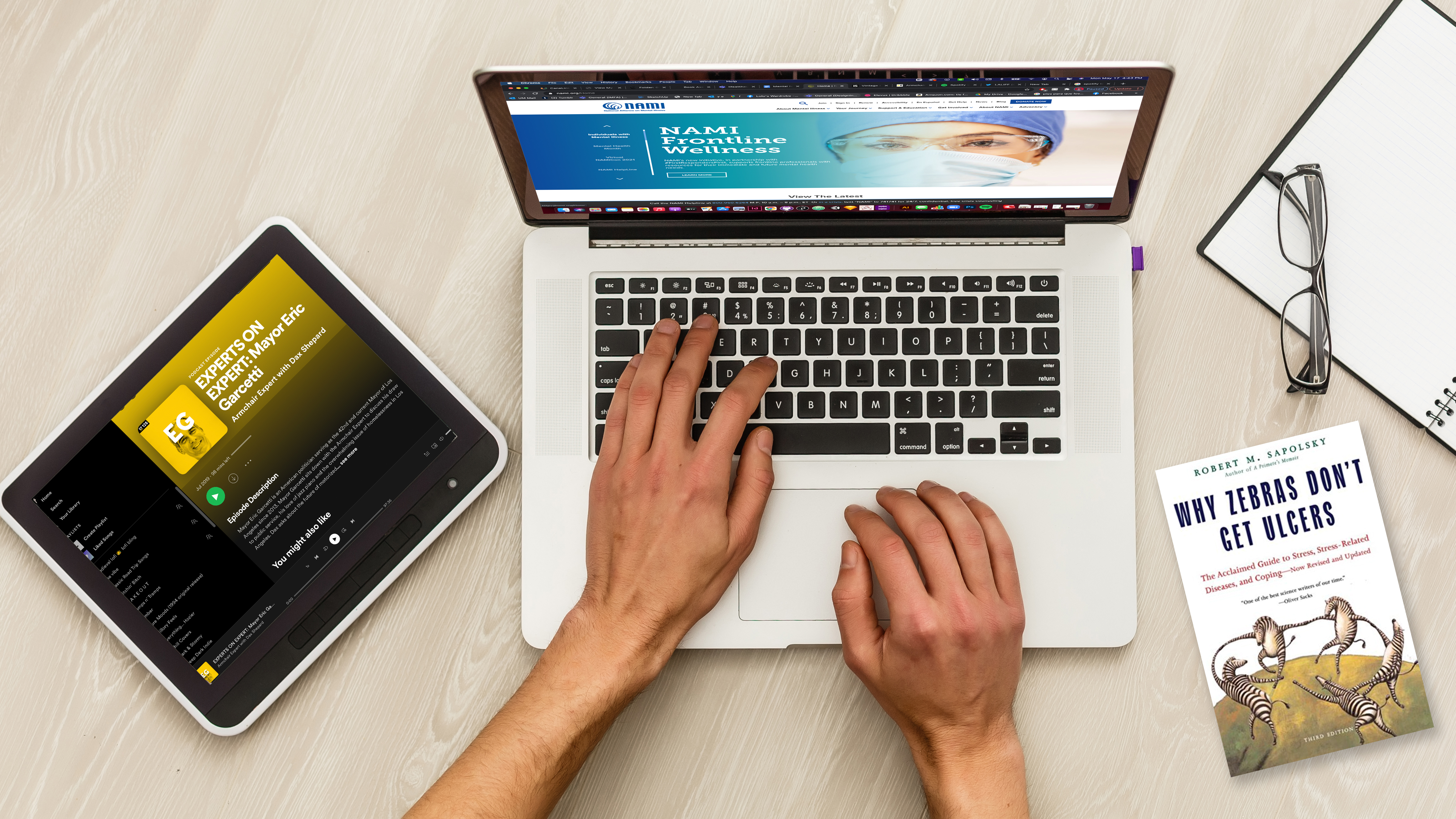In honor of Mental Health Awareness Month, we’ve curated a list of resources recommended by experts from the College of Arts and Sciences’ Department of Psychology and from the Miller School of Medicine’s Department of Psychiatry and Behavioral Sciences. Explore the list, then share your favorite mental health resources by completing this form. Check back often because we will add new suggestions to the list as they are submitted.
Armchair Expert
Podcast by Dax Shephard
“It's a great podcast that features tons of experts who discuss mental health and wellness.”
—Nicole Mavrides, M.D., assistant professor of psychiatry and behavioral sciences
“Culturally Informed Therapy for Schizophrenia: A Family-Focused Cognitive Behavioral Approach”
Book by Amy Weisman de Mamani, Merranda McLaughlin, Olivia Altamirano, Daisy Lopez, and Salman Shaheen Ahmad
“This intervention really takes a holistic approach of who clients are when treating their mental illness symptoms. In addition to hallmark symptoms of the illness, it focuses more generally on increasing well-being and quality of life.”
—Amy Weisman, Ph.D., professor of psychology
effectivechildtherapy.org
Society of Clinical Child and Adolescent Psychology
“This site has good, evidence-based information that can help parents who are concerned about their children's mental health.”
—Amanda Jensen-Doss, Ph.D., professor of psychology
“The Mindful Way through Depression: Freeing Yourself from Chronic Unhappiness”
Book by Mark Williams, John D. Teasdale, Zindel V. Segal, and Jon Kabat-Zinn
“This book is a helpful introduction to mindfulness and supports cognitive behavioral therapy, or CBT.”
—Felicia Gould, Ph.D., assistant professor of psychiatry and behavioral sciences
nami.org
The National Alliance on Mental Illness (NAMI) website
“This site offers lots of great, valuable information for patients and families affected by mental illness.” [NAMI is the nation's largest grassroots mental health organization dedicated to building better lives for the millions of Americans affected by mental illness.]
—Vanessa Padilla, M.D., assistant professor of psychiatry and behavioral sciences
“Why Zebras Don’t Get Ulcers”
Book by Robert M. Sapolskyo
“This book offers a great overview of how stress affects the brain and body.”
—Aaron Heller, Ph.D., associate professor of psychology
Find a list of mental health resources available to the University community. Explore more tools to help you manage your health and well-being.

